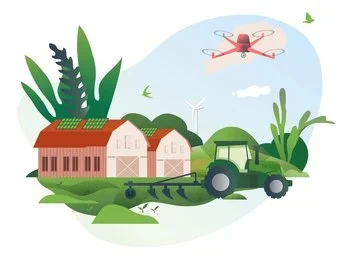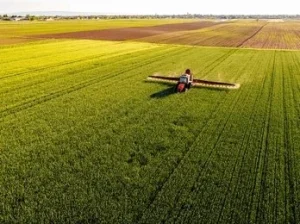Rural management education in India is pivotal for bridging the gap between urban and rural development. It equips professionals with the skills to manage rural resources efficiently and drive socio-economic growth. As rural areas encompass a significant portion of India’s population, understanding the dynamics of rural management becomes crucial. This blog explores the importance of rural management education, focusing on its scope, career opportunities, and personal fulfilment for professionals.
Scope of an MBA in Rural Management
An MBA in Rural Management offers a diverse curriculum that includes subjects like rural development, agribusiness, cooperative management, and sustainable development. This specialized education prepares students to tackle challenges unique to rural settings, such as resource management, infrastructure development, and enhancing agricultural productivity. Programs like the PGDM in Rural Management are designed to provide practical knowledge and hands-on experience, ensuring graduates are well-equipped to implement effective strategies in rural areas.
Importance of Rural Management Education in India
The importance of rural management education cannot be overstated in a country like India, where a large percentage of the population resides in rural areas. This education helps in developing policies and programs aimed at improving the quality of life in these regions. By understanding rural economies, professionals can contribute to the sustainable development of rural communities, ensuring they become self-sufficient and economically viable.
- Opportunity to Make a Difference
One of the most compelling reasons to pursue a rural management course is the opportunity it provides to make a tangible difference in the lives of rural populations. Graduates can work with government agencies, NGOs, and private sectors to implement projects that enhance rural infrastructure, education, healthcare, and agriculture. This field offers a unique blend of social work and business management, making it deeply fulfilling for those passionate about rural development.
- Career Growth and Advancement
The field of rural management offers significant career growth and advancement opportunities. Professionals with a master in rural management can ascend to leadership positions in various organizations. They are often sought after for roles in rural development agencies, agribusiness firms, and international development organizations. The growing focus on rural development in India ensures a steady demand for skilled rural managers, paving the way for a rewarding career.
- Diverse Career Paths
Rural management graduates have access to a diverse range of career paths. They can work in sectors such as agribusiness, rural marketing, microfinance, and rural healthcare. Additionally, roles in policy formulation, project management, and community development are common. This diversity allows professionals to align their careers with their interests and expertise, ensuring job satisfaction and growth.
- Collaborative Work Environment
A career in rural management often involves working in a collaborative environment. Professionals frequently engage with various stakeholders, including government bodies, NGOs, community leaders, and rural populations. This interaction fosters a sense of teamwork and collective responsibility, essential for the successful implementation of rural development projects.
- Strong Job Security
The field of rural management offers strong job security. The increasing emphasis on rural development by the government and various organizations ensures a consistent demand for skilled professionals. Additionally, the diverse career options within this field provide stability and numerous opportunities for career advancement.
- Personal Fulfilment
Working in rural management can be personally fulfilling. Professionals in this field play a vital role in uplifting rural communities, contributing to their overall development. The ability to witness the positive impact of one’s work on the lives of rural populations provides a deep sense of satisfaction and achievement.
Related Blog: The Perks of Pursuing a PGDM in Rural Management in Mumbai
About Rural Management Programme at Welingkar
The Rural Management Programme at Welingkar is designed to equip students with the knowledge and skills needed to excel in rural management roles. The curriculum covers various aspects of rural development, including agribusiness, cooperative management, and sustainable development. Practical training and fieldwork are integral parts of the program, ensuring that students gain hands-on experience in real-world rural management scenarios. Welingkar’s strong industry connections and experienced faculty provide students with the guidance and support needed to succeed in this field.
Conclusion
Rural management education plays a crucial role in India’s development. It prepares professionals to address the unique challenges of rural areas, contributing to their sustainable growth. An MBA or PGDM in rural management offers diverse career opportunities, strong job security, and personal fulfilment. Institutions like Welingkar are at the forefront of providing quality education in this field, ensuring that graduates are well-prepared to make a significant impact on rural development. As India continues to focus on rural growth, the demand for skilled rural managers will only increase, making this an opportune time to pursue a career in rural management.






